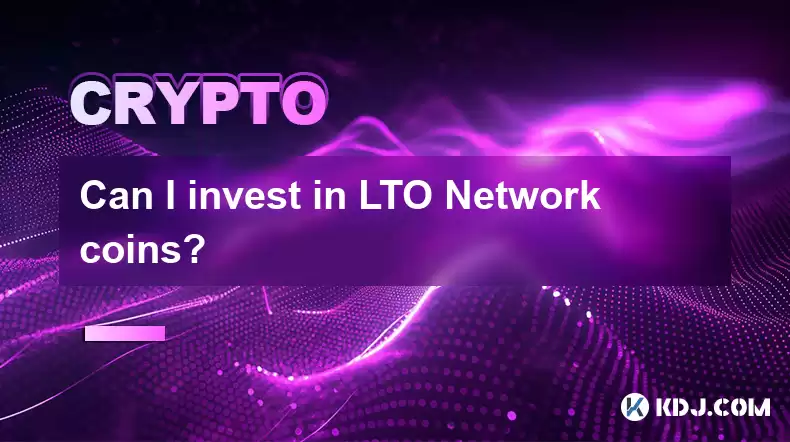-
 Bitcoin
Bitcoin $119100
-0.58% -
 Ethereum
Ethereum $4278
-0.66% -
 XRP
XRP $3.164
-1.81% -
 Tether USDt
Tether USDt $1.000
0.01% -
 BNB
BNB $811.7
0.11% -
 Solana
Solana $176.3
-3.92% -
 USDC
USDC $0.9999
0.01% -
 Dogecoin
Dogecoin $0.2255
-4.43% -
 TRON
TRON $0.3480
2.60% -
 Cardano
Cardano $0.7828
-3.40% -
 Hyperliquid
Hyperliquid $43.59
-4.94% -
 Chainlink
Chainlink $21.34
-3.88% -
 Stellar
Stellar $0.4443
-0.97% -
 Sui
Sui $3.697
-5.60% -
 Bitcoin Cash
Bitcoin Cash $596.5
4.16% -
 Hedera
Hedera $0.2498
-5.10% -
 Ethena USDe
Ethena USDe $1.001
-0.03% -
 Avalanche
Avalanche $23.11
-4.00% -
 Litecoin
Litecoin $121.1
-1.75% -
 Toncoin
Toncoin $3.397
0.42% -
 UNUS SED LEO
UNUS SED LEO $9.002
-1.29% -
 Shiba Inu
Shiba Inu $0.00001307
-4.57% -
 Uniswap
Uniswap $11.20
0.30% -
 Polkadot
Polkadot $3.901
-4.75% -
 Cronos
Cronos $0.1698
3.07% -
 Ethena
Ethena $0.8122
-3.72% -
 Dai
Dai $1.000
0.03% -
 Bitget Token
Bitget Token $4.416
-1.13% -
 Monero
Monero $263.9
-0.82% -
 Pepe
Pepe $0.00001130
-7.37%
Can I invest in LTO Network coins?
Investing in LTO Network coins involves considering factors like market trends, token economics, real-world adoption, regulatory environment, and alternative cryptocurrency options.
Jan 01, 2025 at 06:22 am

Key Points:
- Overview of LTO Network and its Key Features
- Factors to Consider Before Investing in LTO Network Coins
- How to Purchase LTO Network Coins
- Potential Returns and Risks of Investing in LTO Network Coins
- Alternative Cryptocurrency Investment Options
Can I Invest in LTO Network Coins?
Overview of LTO Network and its Key Features:
LTO Network is a decentralized blockchain specifically designed for the secure and efficient management of digital documents. It offers several key features, including:
- Secure Digital Document Storage: LTO Network provides a tamper-proof and immutable ledger to store and manage important digital documents, such as contracts, invoices, and certificates.
- Automated Document Processing: Automated workflows, triggered by predefined rules, can be implemented to streamline document-related processes, reducing manual tasks and improving efficiency.
- Verifiable Credentials: LTO Network allows for the creation and verification of tamper-proof credentials, such as diplomas, training certificates, and licenses. This ensures the authenticity and validity of these credentials.
- Time-Stamping Services: Precise time-stamping of digital documents is essential for ensuring their integrity and proving the time of creation or modification. LTO Network provides reliable time-stamping services through its decentralized network.
- Utility Token (LTO): LTO is the native utility token of LTO Network. It is used to pay for transaction fees, participate in governance, and reward validators who maintain the network's integrity.
Factors to Consider Before Investing in LTO Network Coins:
Before investing in LTO Network coins, consider the following factors:
- Market Trends and Volatility: The cryptocurrency market is known for its volatility. Research historical trends and current market conditions to understand the potential risks and rewards associated with investing in LTO coins.
- Token Economics: Understand the distribution of LTO coins, including the total supply, circulating supply, and token usage. This can provide insights into the potential supply and demand dynamics.
- Team and Partnerships: The success of any blockchain project heavily depends on its team and ecosystem. Evaluate the experience and expertise of the LTO Network team and identify important partnerships established.
- Use Cases and Adoption: Consider the real-world applications and adoption of LTO Network solutions within various industries. This can provide insights into the potential growth and demand for LTO coins.
- Regulatory Environment: The regulatory landscape surrounding cryptocurrencies is constantly evolving. Stay informed about any regulatory developments that could impact LTO Network and the value of its coins.
How to Purchase LTO Network Coins:
- Choose a Cryptocurrency Exchange: Select a reputable cryptocurrency exchange that allows you to trade LTO coins.
- Create an Account: Register with the exchange and complete the account setup process, which may include providing personal information and verifying your identity.
- Deposit Funds: Transfer funds to your exchange account to purchase LTO coins. Different exchanges may support various deposit methods, such as bank transfers, credit/debit cards, or other cryptocurrencies.
- Place an Order: Use the exchange's trading interface to place an order to buy LTO coins. Specify the amount you want to purchase and the desired price or order type.
- Complete the Purchase: Once your order is executed, LTO coins will be credited to your account balance on the exchange.
Potential Returns and Risks of Investing in LTO Network Coins:
- Potential Returns: The value of LTO coins, like any cryptocurrency, can fluctuate based on market demand and adoption. While there is potential for price appreciation, investing in cryptocurrencies always involves risks.
- Risks: Cryptocurrencies are volatile assets with the potential for significant price swings. Other risks include technological issues, regulatory uncertainty, and market manipulation.
Alternative Cryptocurrency Investment Options:
In addition to LTO Network, there are numerous cryptocurrency projects with unique offerings. Consider your investment goals and risk appetite when exploring other investment options.
FAQs:
- What is the total supply of LTO coins?
The total supply of LTO coins is 400 million. - Who is the founder of LTO Network?
Richard de Jong is the CEO and Co-Founder of LTO Network. - What is the difference between LTO Network and other blockchain projects?
LTO Network is specifically designed for the secure management of digital documents, offering features such as tamper-proof storage, automated workflows, and verifiable credentials. - How can I store my LTO coins securely?
You can store your LTO coins in a secure hardware wallet or a reputable software wallet that supports LTO. - Is LTO Network a good investment?
The potential returns and risks of investing in LTO Network should be carefully considered based on individual investment goals, risk tolerance, and market conditions.
Disclaimer:info@kdj.com
The information provided is not trading advice. kdj.com does not assume any responsibility for any investments made based on the information provided in this article. Cryptocurrencies are highly volatile and it is highly recommended that you invest with caution after thorough research!
If you believe that the content used on this website infringes your copyright, please contact us immediately (info@kdj.com) and we will delete it promptly.
- BlockDAG, Chainlink, Hedera: The Cryptos Enterprises are Eyeing
- 2025-08-12 09:30:12
- Dogecoin's Wild Ride: Big Holders, Price Push, and What's Next for the Meme Coin
- 2025-08-12 08:30:12
- Coin Master Board Adventure: Free Energy and the Thrill of the Board
- 2025-08-12 08:50:12
- Bitcoin to $133,000? Here's What the Experts Are Saying
- 2025-08-12 08:30:12
- LYNO AI Presale: Early Bird Opportunity Before Token Price Hike
- 2025-08-12 08:50:12
- Dogecoin, Tron Update, Cold Wallet ROI: Navigating Crypto's Choppy Waters
- 2025-08-12 09:30:12
Related knowledge

How to purchase Aragon (ANT)?
Aug 09,2025 at 11:56pm
Understanding Aragon (ANT) and Its PurposeAragon (ANT) is a decentralized governance token that powers the Aragon Network, a platform built on the Eth...

Where to trade Band Protocol (BAND)?
Aug 10,2025 at 11:36pm
Understanding the Role of Private Keys in Cryptocurrency WalletsIn the world of cryptocurrency, a private key is one of the most critical components o...

What is the most secure way to buy Ocean Protocol (OCEAN)?
Aug 10,2025 at 01:01pm
Understanding Ocean Protocol (OCEAN) and Its EcosystemOcean Protocol (OCEAN) is a decentralized data exchange platform built on blockchain technology,...

Where can I buy UMA (UMA)?
Aug 07,2025 at 06:42pm
Understanding UMA and Its Role in Decentralized FinanceUMA (Universal Market Access) is an Ethereum-based decentralized finance (DeFi) protocol design...

How to buy Storj (STORJ) tokens?
Aug 09,2025 at 07:28am
Understanding Storj (STORJ) and Its Role in Decentralized StorageStorj is a decentralized cloud storage platform that leverages blockchain technology ...

Where to find the best price for Audius (AUDIO)?
Aug 11,2025 at 04:01pm
Understanding the Basics of Ethereum StakingEthereum staking refers to the process of locking up ETH tokens to support the security and operations of ...

How to purchase Aragon (ANT)?
Aug 09,2025 at 11:56pm
Understanding Aragon (ANT) and Its PurposeAragon (ANT) is a decentralized governance token that powers the Aragon Network, a platform built on the Eth...

Where to trade Band Protocol (BAND)?
Aug 10,2025 at 11:36pm
Understanding the Role of Private Keys in Cryptocurrency WalletsIn the world of cryptocurrency, a private key is one of the most critical components o...

What is the most secure way to buy Ocean Protocol (OCEAN)?
Aug 10,2025 at 01:01pm
Understanding Ocean Protocol (OCEAN) and Its EcosystemOcean Protocol (OCEAN) is a decentralized data exchange platform built on blockchain technology,...

Where can I buy UMA (UMA)?
Aug 07,2025 at 06:42pm
Understanding UMA and Its Role in Decentralized FinanceUMA (Universal Market Access) is an Ethereum-based decentralized finance (DeFi) protocol design...

How to buy Storj (STORJ) tokens?
Aug 09,2025 at 07:28am
Understanding Storj (STORJ) and Its Role in Decentralized StorageStorj is a decentralized cloud storage platform that leverages blockchain technology ...

Where to find the best price for Audius (AUDIO)?
Aug 11,2025 at 04:01pm
Understanding the Basics of Ethereum StakingEthereum staking refers to the process of locking up ETH tokens to support the security and operations of ...
See all articles

























































































